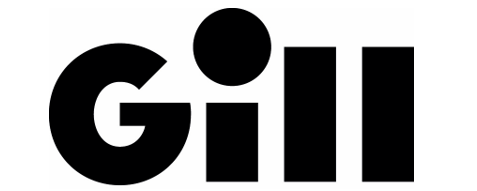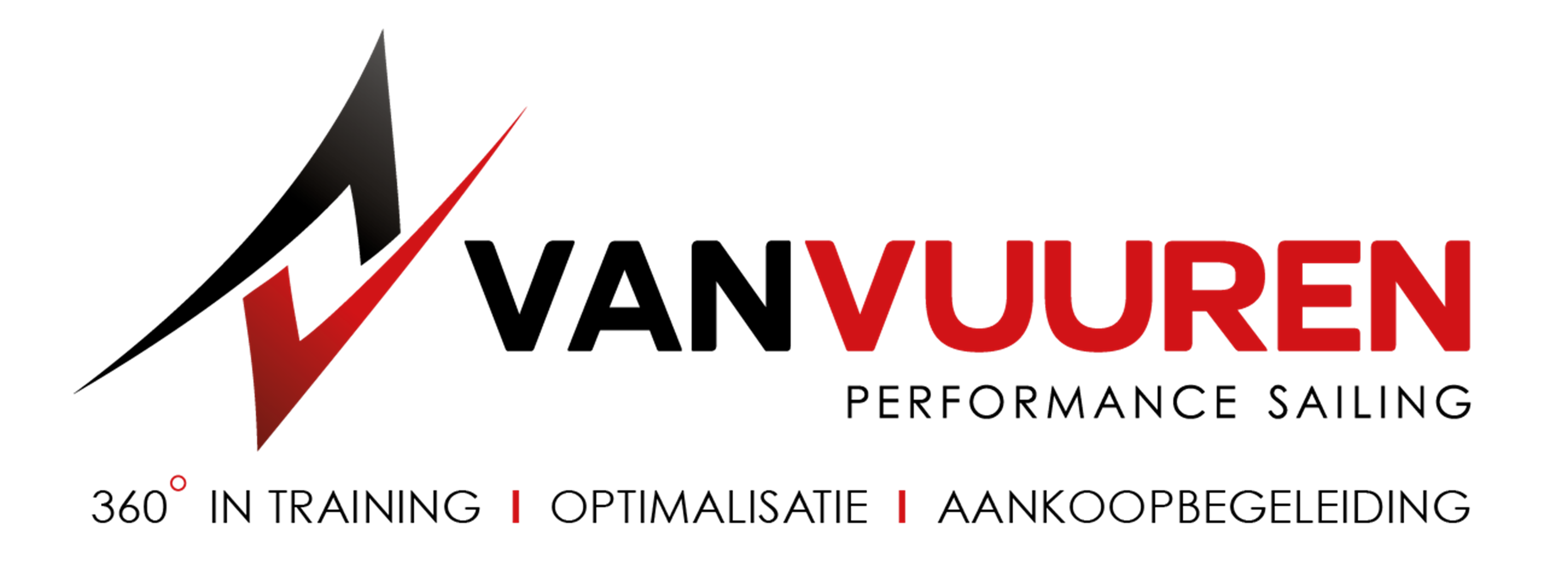Putting it back together: Cowes-Cherbourg Race.
16 november 2018 - As we stepped from Double Edge to the pontoon, to head to the noontime prize giving and lunch, a petite French sailor stepped (much more nimbly, I might add) from the boat berthed next to us and asked “I hope we did not wake you when ................
we arrived”. I replied “We didn't even hear you, and I hope our snoring didn’t keep you awake”. I glanced at her boat, the perennial offshore winner Foggy Dew – immaculately tidied, sails flaked and deck cleared of lines -- and then at Double Edge, sails crumpled and hastily lashed, a tangle of multicolored lines across the cockpit. “I hope you'll also excuse the state of our boat”. She laughed, and said “You were two-handed, and arrived before us, so of course it is excused.”
The Cherbourg Race serves as the traditional season finale, a comparatively short 90 mile sprint across the English Channel to the ancient French port of Cherbourg -- a final opportunity to earn season points and silverware, to joust with now-familiar rivals, and to apply a season of hard lessons and experience. Combined this year with the UK Doublehanded Championship, all of the top UK and French duos entered, with a final opportunity to measure our progress against impressive peers. It is said that fully crewed offshore boats can race at 100% intensity for 100% of a race, while doublehanded boats may ease slightly back, delay a sail change, or miss a tactical opportunity due to mental fatigue. In offshore sailboat racing there is a bone-deep fatigue from short snatches of sleep, especially for doublehanded boats, but with so much at stake for every boat, crewed or doublehanded, the Cherbourg Race is 100% racing, 100% of the time – and comprehensively exhausting.
A promising early season in Holland, with strong showings and several podium places, validated our planning and extensive doublehanded conversion of this storied Corby 38. We steadily gained confidence and speed, learning from each race and trying to tame a high-strung and very quick racer. There is an old saying in sports -- Form is temporary, class in permanent”, and even despite our stumbles this unique one-off boat increasingly gives us – and our competitors -- glimpses of her considerable class.
Moving mid-Summer to the RORC series, Double Edge and her grew stronger, but equipment vulnerabilities and hidden flaws took a dispiriting—and expensive – toll. We’ve never retired from a race more than once in a season, and suddenly we faced three retirements in a row. The boat itself was fine, but a torn mainsail [not OneSails] while leading the East Coat Race, an extensive electrical failure from a terrific position in the St. Malo Race, and finally a mast track failure in the Channel Race left us with few series points and perhaps some shaken confidence. It also robbed us of much needed race time and experience.
We hoped to right the season in the De Guingand Bowl Race two weeks ago, but visions of silverware were dashed away when part of the fixed bowsprit separated from the boat. We finished the race without the benefit of the downwind sails, ending up near the bottom on corrected time - and facing a big repair and short schedule.
The sail racing community is close particularly in Cowes and the Solent, with considerable experience in engineering and repairing complex boat systems. Friends and competitors are generous with their recommendations and help, and in this case we again turned to Jonathan, our amazing emergency oh-shit boat all-rounder. He knew a pair of artisans who could work magic on broken carbon fiber bits, and they set quickly to repair it. They were also not surprised that the original installation had failed -- in the quest to save a few grams the weakest point of the structure is often dramatically exposed.
We looked forward to the race but with some wistfulness, leaving Cowes after another enjoyable Summer stay. We prepared Double Edge ever so meticulously, made our traditional rounds and visited our favorite haunts. Waitrose for provisions and the essential Welsh Cakes (the good ones this time, as Ken disapproved of a thrifty alternative in the last race), a few last bits from the Chandlery, and a final fine dinner at Mojac’s.
The Cherbourg Race starts early evening, with ample time to prepare. Late afternoon we reviewed weather forecasts, planned our course and expected sail changes, and motored down the Medina, past the plagued chain ferry and Cowes waterfront, and out to the start area. Very light winds were forecast and we would start to the east, running southeast down the Solent under spinnaker for an hour until we passed between the pair of massive 19th century grey stone forts that stand guard at the mouth of the Solent. We would then come up to the wind on white sails and set course for France.
In the hour before the start the wind quickly began to build and we made a late decision to change from the light spinnaker to the heavy running spinnaker. We would start with the other big boats in the second group, and as the wind stiffened we were nearly overpowered as we sliced back and forth well behind the line. A puff of smoke from a start cannon on the promenade by Cowes Castle, a sharp report a moment later, and the 40-strong first group hoisted spinnakers and set course. The gusting winds wreaked havoc on a fair number of boats, several rounding up or laying flat, spinnakers noisily flapping , shouts and hard commands heard across the water.
As the last seconds ticked down to our start we found a wide clear patch along the line, eased the sheets and powered up. Once over the line we quickly hoisted the spinnaker, slowed briefly by a balky line clutch, and Double Edge jerked forward as the big sail snapped full. We trimmed the sail in, eased the mainsail further, and as the boat speed built we pulled hard on the tiller to keep her on line and on her feet.
Normally we drop the jib for additional speed under spinnaker, but with hard and gusty winds we elected to keep it hoisted. We sped along at 9 to 10 knots, holding our own among higher rated boats in our class, and soon began to pass a number of boats from the first group. We roared toward No Man’s Fort, the southerly of the two structures, smack into a slowing mass of boats dropping spinnakers. We bore away in traffic for the drop and set the autopilot to briefly hold the course, and as Ken weaved forward I worked the lines from the cockpit.
In the RORC races the doublehanded boats compete equally in classes with the fully crewed boats, as well as having separate scoring as a doublehanded class. The crewed boats give no quarter and push the doublehanded boats hard. In the middle of our spinnaker drop one of our Class 1 crewed competitors bore directly towards us. Though we had right of way their skipper held course, until I shouted and pointed toward the unmanned tiller. Rather than t-bone a ghost ship they properly came up and passed safely ahead.
With the big spinnaker safely down the forehatch we came up to the wind, and joined the line of boats sailing down the eastern shore of the Island. The tide was beginning to turn against, and after several hours of stiff winds the seas were now building and irregular. In other races we often found ourselves nearby Cracklin’ Rosie, a bigger, well-crewed, faster rated, and lovely red Corby 40. Early in the St. Malo Race we pulled off a nifty crash-gybe a few feet above them, and sailed in formation with them early in the Channel Race. In the steady breeze and lumpy seas she how held an advantage with substantial crew weight on the rail, and we tried to keep pace. Some doublehanded boats depend almost completely on the autopilot to steer the optimum course, with advanced gyros and compasses processing a thousand measurements per second. In most conditions this can be advantageous, but this generation of autopilots cannot look ahead, across the rolling swells and sharp choppy waves, and choose the most settled course. Helming is at once mesmerizing and oddly relaxing, keeping focus on a continuously changing scene of waves and water ahead, sensing the pressure on the tiller, and taking satisfaction in steering a better course and maintaining a rhythm.
We sailed for a brief yet interminable time in Rosie’s lee, trying on occasion to work above them to clear air, until they slowed slightly while overtaking a slower boat above them. We quietly dropped slightly further of the wind and eased the sheets, building just enough speed to pull out of their foul wind and into clear air. A close by rival sharpens the senses, and Ken and I worked silently and continuously to slowly edge away from Rosie.
Prior to the start our course software suggested a relatively straight line course to Cherbourg, with some deviation from the ‘rhumline’ [straight line course to the finish] to account for tidal currents. The tides near Cherbourg are fast and merciless, and long ago we watched a race slip away as we were caught on the ‘wrong side’ of the course and battled against tide near the finish. We also recalled similar conditions a few years ago, where keeping west early along the island, and getting a push from the stream just below the southern tip, allowed us to run ealier and deeper with a spinnaker. Swayed by past success, we decided to again sail further west, and as we passed south of the Island the current shifted -- with much satisfaction we hoisted our heavy running spinnaker, and picked up speed.
We moved further ahead of Rosie but it was hard work holding the course, losing our footing once or twice. In the midnight hours we scythed through the field, passing bobbing mastlights, later heading back across the rhumline. The forecast called for lighter winds near Cherbourg, so we pushed further west to account for the tide that would later push us back toward Cherbourg.
In the early morning hours the wind died to 7-10 kts, then lower. The tide pushed the fleet west and many well past the rhumline, while Double Edge showed a good turn of speed in the light breeze. With three miles to go a breeze stiffened to 8 -9 kts, with a straight line run to the finish. Driven by hope and greed we pushed toward the line, just as the tide began to turn against and the wind dropped. Rather than blindly and optimistically pushing forward as we might have years before (and bearing the scars of having done so), we decided to cut our losses, drop the spinnaker, and tack back west while we still had a slight breeze.
Slipping along in 6 knots wind and flat waters, we wordlessly trimmed and kept the disappointment to ourselves. We had no good idea where we stood in our class or in the doublehanded rankings, but worried that the wind would die further and we would be swept off by the tide. Our spirits were briefly buoyed when we realized the mastlight just ahead was another Corby in our class, the higher rated Corby 45 Incisor.
After an interminable 25 minutes sailing into growing tide, we tacked back toward the harbor entrance and the finish just beyond. We maintained modest speed in the very light airs inside the harbor walls, and several minutes later passed the finish boat, not far behind Incisor. No high-fives or celebration, exhaustion overpowering any sense of accomplishment or relief. We dropped sails and motored toward the marina, speaking in fragments and trailing off, both completely drained.
One of the features of the RORC races is near-instantaneous online updates of the standings, and we traditionally check our current standing just after the finish. Arriving at the marina just before daybreak we found an open outside berth, tied up, went below, and too tired to check anything we fell into deep sleep.
Mid morning I awoke, disoriented but rested. I checked the online rankings, expecting a mid-fleet result as the price exacted for our late greed.
“Ken – are you awake”
“I am now…”
“What do you think of 4th in IRC 1, ahead of the other Corbys, and even better, 4th in the big doublehanded class?”
“You’re joking”
“Nope…congratulations”.
“We didn’t break anything either”
Emerging from the cabin later, squinting in the sunlight, I noticed the slips around us now full with later finishing boats. A young French sailor stepped off the boat next to us, and apologized if they woke us when they arrived. I apologized for our chaotic mess of a boat, but she took in two red-eyed, grinning old doublehanders and understood. We broke the curse, put the past behind us, and finally got a little of Double Edge’s mojo back.
Prachtige zeildag met een mooie wind tijdens november Goofies
13 november 2018 - Vorige maand lukte het door gebrek aan wind niet om alle zeilers over de start te krijgen. Nu was er voldoende wind om een “normale” Goofies zeilrace te kunnen varen. In combina... Lees verder
Prijsuitreiking Verbondsbezems 2018
8 december 2018 - Zaterdagavond 24 november 2018 zijn de jaarprijzen van de Noordzeeclub uitgereikt, hieronder de felbegeerde Verbondsbezems. Drie bijzondere prijzen zijn uitgereikt en in totaal... Lees verder













